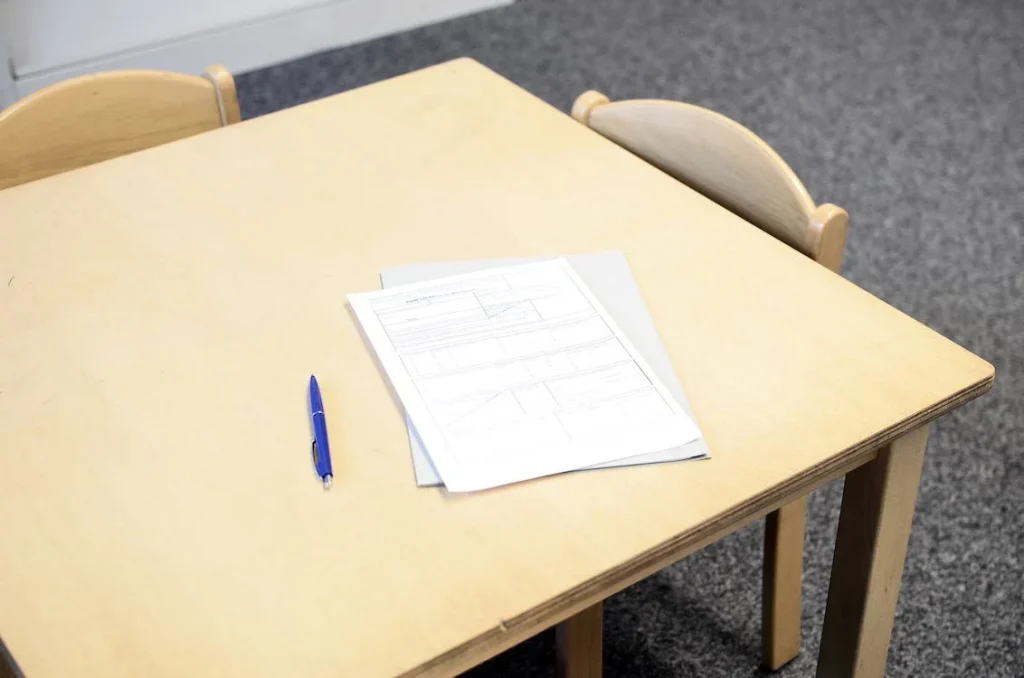Diving into the heart of exam season, do you find your pulse racing at the mere thought of a test? Welcome to the club of numerous students navigating the turbulent waters of test anxiety. But fear not! This guide isn’t just about understanding those nerve-racking moments; it’s your roadmap to mastering them. From unpacking the reasons behind anxiety to checking out the latest tech tools and looking ahead at stress-free tests, we’re here to turn those sweaty palms into a winning sign.
So, get ready, and let’s journey together towards turning that test anxiety into cheers!
Understanding test anxiety definition
Feeling anxious about tests is a common experience, reflecting your desire to perform well. This concern takes form in different ways:
- The diligent student. You’ve carefully attended all your classes, your notes are detailed, and you feel confident about the material. But a nagging doubt sticks around. What if the test includes unexpected questions?
- The last-minute studier. Your study sessions have been irregular, and you find yourself hoping that the limited information you’ve studied will be enough. Relying heavily on chance, this approach makes the exam appear overwhelmingly challenging.
Beyond individual study efforts, there’s also the influence of academic culture:
- Strict standards. Accounts of stringent examiners and complex questions can heighten anxiety, making the test environment seem especially daunting.
- Rumored easy grading. Hearing about tolerant marking or simple tests might make you less motivated to study hard.
This combination of personal study practices and shared academic stories creates a complex perspective on test anxiety. It’s a shared experience, with each student finding their own path, yet brought together by the shared hurdles and stories that shape the academic path.

The science behind test anxiety
Understanding test anxiety means looking beyond just feeling nervous before a test; it’s about getting to the heart of what causes these feelings in our mind and body. This exploration sheds light on the science behind why test anxiety is a significant barrier for 20 to 40% of students, as revealed by a 2021 study in Frontiers in Psychiatry. We’ll look at its symptoms, underlying causes, and effective strategies to not only manage but also conquer this challenge.
Symptoms of test anxiety
Experiencing test anxiety can manifest in various ways, impacting your mind and your body’s responses. Here are some common symptoms that you may encounter:
- Difficulty concentrating. This often leads to challenges in retaining and recalling vital information, affecting performance.
- Feelings of despair and failure. Such emotions can significantly lower self-confidence and motivation.
- Rapid heartbeat and physical discomfort. Symptoms like sweating, nausea, and an accelerated heartbeat can make sitting through tests particularly uncomfortable.
- Avoidance of test situations. A natural response to anxiety might be to avoid testing situations altogether, which can slow down academic progress and learning opportunities.
Understanding these symptoms can be the first step towards managing test anxiety effectively.
Root causes
Understanding the underlying factors of test anxiety is crucial for managing it effectively. This anxiety doesn’t arise in a vacuum; it emerges from a complex blend of mental factors and physical reactions:
- Self-efficacy and mental imagery. The belief in our own abilities, or self-effectiveness, plays a key role. When you doubt your capability to succeed, anxiety levels can suddenly increase. This situation often worsens when we strongly picture bad test results, making us less confident and more stressed.
- Fight or flight response. Our bodies naturally react to danger with a ‘fight or flight’ response, making our hearts beat faster and keeping us on high alert. During tests, this reaction can be set off by the fear of not doing well, leading to many physical signs that aren’t helpful at that moment.
- Psychological triggers:
- Fear of failure. The worry about not living up to expectations, whether on your own or others, can be a significant source of anxiety.
- Inadequate preparation. Feeling unprepared not only heightens anxiety but also highlights the importance of consistent and effective study habits.
- Negative past experiences. Bad experiences in previous tests can stay, causing heightened stress and anxiety in future situations.
- Performance pressure. The external and internal pressures to perform well can significantly contribute to test anxiety.
Each of these factors can feed into the other, creating a cycle that boosts test anxiety. Breaking down these components helps us to understand the multifaceted nature of test anxiety and lays the groundwork for effective management strategies.
Strategies for overcoming test anxiety
Achieving academic success involves more than just understanding the material; it requires managing the anxiety that can cloud your performance during tests. It disrupts your ability to recall information and leads to a harmful cycle of stress that impacts your long-term health. As you approach your tests, whether you’re frequently anxious or only during high-pressure periods, it’s crucial to embrace proactive strategies to reduce these feelings.
This section outlines effective, actionable steps to build resilience against test anxiety, ensuring you’re well-prepared for upcoming tests and beyond.
Long-term methods for reducing test anxiety
Building a basis to effectively manage test anxiety from the start can greatly improve your academic performance. Here are essential strategies to develop resilience against test anxiety over the long term:
- Set a consistent study routine. Attend all your lectures, keep up with your coursework, and review materials periodically. Consistency in studying can alleviate doubts about your preparation and improve retention.
- Develop a realistic study plan. Clearly outline your study sessions and test dates. Setting realistic goals each day helps keep you on track and reduces last-minute cramming, which can boost anxiety.
- Seek support when needed. Don’t hesitate to ask for help to clarify doubts or concepts you’re struggling with. Use resources such as tutoring centers, study groups, or office hours provided by your instructors. Acting early can prevent misunderstandings from becoming overwhelming.
- Manage procrastination. Break down your tasks into manageable segments. This approach helps control the feeling of being overwhelmed, which often leads to delaying tasks. By creating a step-by-step plan, you can tackle your studies more effectively.
- Embrace pre-test strategies. Prepare all necessary materials ahead of time, such as textbooks, notes, and other study resources. Ensuring your academic work is polished and error-free can also significantly alleviate test anxiety. Our document revision services, supported by expert editors, help refine your essays and assignments, boosting your confidence in the quality of your submissions. This comprehensive preparation guarantees you have everything you need, effectively reducing stress on the day of the test.
Technology and test anxiety
In the digital age, technology plays a dual role in your educational experiences. While it offers powerful tools for learning and organization, it can also be a source of distraction, contributing to test anxiety through constant notifications and the temptation of social media. However, when used correctly, technology can become a significant ally against test anxiety. Here’s how you can use it to your advantage:
- Study assists. Use online platforms that offer diverse study aids. Websites like Quizlet provide flashcards, while platforms like Khan Academy feature comprehensive tutorials and practice tests. These resources can improve your understanding and readiness for tests.
- Multilingual AI detector. To ensure the authenticity of your academic work and reduce test anxiety related to plagiarism concerns, our AI detector uses advanced algorithms to differentiate between human-written content and AI-generated text. This tool is crucial for upholding academic integrity, allowing you to submit your work with confidence and peace of mind, knowing it sticks to originality standards.
- Mindfulness and meditation apps. Apps such as Headspace or Calm offer guided meditation sessions that can help reduce stress and improve concentration. Regular use of these apps can help you develop a calm mindset, essential for effective test preparation and performance.
- Time management tools. Use apps like Forest to stay focused while studying. It helps you stay off your phone by making focus time like a game — the longer you avoid using your phone, the more virtual trees you grow, creating a forest. This can be a fun and effective way to manage your study sessions and reduce anxiety by minimizing distractions.
- Tutorial on effective app usage. Here’s a brief guide on using these apps:
- Quizlet. Start by creating or searching for a set of flashcards related to your study topics. Use these for spaced repetition learning, which is highly effective for memorization.
- Headspace. Schedule short daily meditation sessions, ideally before study sessions, to clear your mind and improve focus.
- Forest. Set it up during your study times to block out distractions and build focus intervals. Aim for 25-minute focus blocks with 5-minute breaks in between.
Integrating these technologies into your study routine can make learning more engaging and significantly reduce the stress associated with test anxiety.

Creating a positive study environment
The environment where you study can greatly affect your efficiency and stress levels. A well-organized, peaceful, and inspiring study space improves focus while reducing anxiety. Here are some tips to create such an environment:
- Choose the right location. Find a quiet, well-lit area where distractions are minimal. This could be a specific spot in your home, a library, or any place conducive to concentration.
- Organize your study space. Keep a tidy and organized desk. The mess can lead to a chaotic mind, which increases anxiety. Keep all necessary study materials within easy reach to minimize disruptions.
- Personalize your space. Incorporate personal touches, such as plants or motivational quotes, to make the area more welcoming and adapted to long study sessions.
- Manage digital distractions. Limit the use of non-study-related electronic devices, or use applications that help block distracting websites during study time.
Relaxation techniques
As you prepare for your tests, incorporating relaxation techniques into your routine can significantly reduce anxiety levels. Explore the following strategies, each designed to meet specific needs and preferences:
- Guided meditation. Especially beneficial for beginners, guided meditation can help calm your mind. Using apps or online videos for guided sessions can introduce you to the basics of meditation, easing stress effectively.
- Mindfulness practices. Engage in mindfulness by paying close attention to your surroundings and the sensations you experience. This practice helps center your thoughts, preventing them from twisting into anxiety.
- Regular physical activity. Physical exercise, such as jogging, swimming, or yoga, is vital for stress reduction. Aim to get about 30 minutes of light to moderate exercise most days of the week. This not only helps reduce stress but also boosts your overall energy levels.
- Evening walks. Incorporating walks into your evening routine can be a simple yet effective way to clear your mind. The fresh air and different surroundings can help clear your mind and lessen feelings of being stuck from long study sessions.
- Balanced diet. Eating a nutritious diet supports both mental and physical health. Focus on foods rich in omega-3 fatty acids, antioxidants, and vitamins to improve your brain function and mood.
- Social interaction. Strengthen connections with friends and family. Supportive relationships are crucial for emotional well-being. If romantic tensions cause stress, addressing these feelings openly or seeking support can prevent them from impacting your studies.
- Pursue hobbies. Dedicating time to hobbies or interests can provide a necessary break from studying. Whether it’s painting, playing an instrument, or gardening, engaging in hobbies offers mental relaxation and joy.
- Structured routine. Develop a balanced schedule that includes adequate time for both studies and relaxation. Overloading yourself without breaks can heighten anxiety, while a well-planned routine can keep stress at manageable levels.
Managing anxiety on exam day
Proper preparation the night before and on the day of the test can strongly influence your performance and anxiety levels. Here’s how to optimize your test day:
- Rest well. Prioritize a good night’s sleep. Aim to relax early by doing calming activities like reading or watching a light-hearted movie. Avoid studying late into the night, as this can increase test anxiety rather than alleviate it.
- Preparation checklist. On the morning of the test, double-check that you have everything you need. This includes your student ID, writing materials, any allowed reference materials, and necessary tools like calculators. Packing a water bottle and a snack that boosts energy, such as nuts or fruit, can help keep your concentration during the exam.
- Stay centered. Upon arriving at the test location, take a moment to practice deep breathing or a quick mindfulness exercise to ground yourself. Remind yourself of your preparation and visualize succeeding on the test to boost your confidence.
- Read carefully. Take the time to read each question thoroughly. If it helps, review all the questions first to get an overview, which can reduce feelings of being overwhelmed.
- Methodical answering. Outline your responses before writing them fully to organize your thoughts. Take care not to rush; ensure that you answer each question thoughtfully and review your answers if time allows.
- Post-test care. Once the test is over, give yourself permission to relax. Engaging in a favorite activity or spending time with friends can help shift your focus from the anxiety of the test.
Future trends in testing and anxiety
As we look toward the future of education, it’s evident that evolving trends have the potential to reshape our approach to testing and, consequently, alleviate test anxiety. Personalized learning environments and adaptive testing methods are becoming increasingly dominant, offering a more tailored educational experience that can meet individual strengths and weaknesses. This change could significantly reduce the one-size-fits-all pressure of traditional tests, potentially easing associated anxiety. Here’s a closer look at these transformative trends:
- Personalized learning environments. Schools like AltSchool and Khan Lab School are pioneering efforts in personalized education. These academic institutions use technology to adapt curriculum and speed according to each student’s needs, showing promising results in reducing test anxiety and improving learning outcomes.
- Expert insights. Dr. Jane Smith, an educational psychologist, explains that adaptive testing methods, which adjust to a student’s ability level, can lessen the fear of failure. These methods achieve this by offering challenges that are well-suited to the student’s capabilities, and not too easy or overly difficult. This can reduce test anxiety and promote a better learning environment.
- Adaptive testing methods. Unlike traditional exams that give the same test to every student, adaptive tests adjust in difficulty based on the student’s answers. This provides a fair assessment that aligns with each student’s current level of understanding. Not only does this method support learning, but it also reduces anxiety by removing the fear of failing in front of peers.
- Comparative analysis. Compared to traditional testing, which involves a set syllabus under high-pressure conditions, these new approaches include ongoing assessments that are less daunting and more supportive of students’ mental health. Traditional methods can increase test anxiety, but these innovative approaches incorporate evaluations more naturally into the learning process, helping to lower stress.
- Innovations in assessment. New methods such as game-based learning and project-based assessments provide different ways to evaluate understanding without the intense pressure of traditional tests. For example, game-based learning platforms like Kahoot! engage students in a competitive yet fun environment that improves learning through interactive quizzes that feel less like testing and more like playing.
- Holistic assessment methods. The increasing recognition of the importance of mental health in academic success is driving the development of more holistic and supportive assessment methods. Schools and universities are beginning to implement systems that value creativity, problem-solving, and critical thinking over rote memorization, thus aligning better with real-world skills and reducing test-related anxiety.
These future trends could change how we think about testing and provide new hope for students dealing with test anxiety. By shifting away from traditional testing methods and adopting these new approaches, academic institutions can develop an educational system that teaches effectively and supports the mental health of all students.

Conclusion
| As we conclude this guide on managing test anxiety, remember that understanding and addressing the root causes of your anxiety—whether it’s through self-awareness, strategic planning, or using technological support—can profoundly impact your academic performance and mental well-being. By adopting consistent study habits, engaging with effective relaxation techniques, and embracing upcoming educational innovations like personalized learning and adaptive testing, you’re setting yourself up for success. These tools prepare you for tests and help cultivate a healthier, more confident approach to learning as educational methods continue to evolve. So, keep pushing forward, using these strategies, and turn your test anxiety into a stepping stone for academic and personal growth. |
